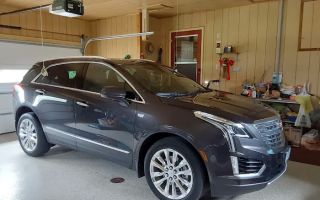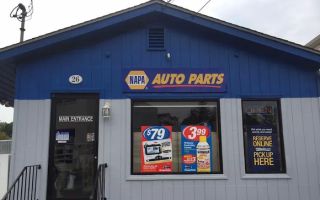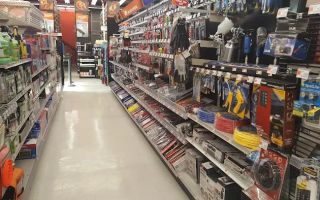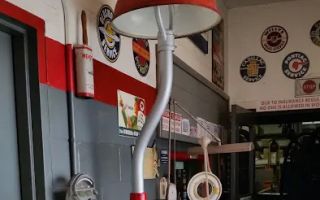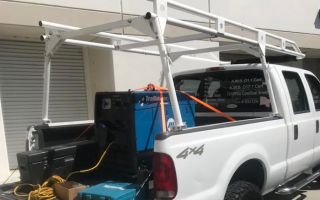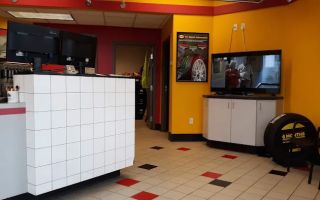How to Prepare for a Tow When Your Trailer Has Electrical Issues
Experiencing electrical issues while towing a trailer can be a frustrating and stressful situation, particularly when you're far from home or in a remote area. Electrical problems, whether with your trailer’s lights, brakes, or other electrical components, can prevent your vehicle from being safely towed or, worse, cause additional damage. Understanding how to prepare for a tow when your trailer has electrical issues is crucial to ensure your safety and the safety of your cargo. In this guide, we’ll explore what to do when you face electrical problems on the road and how to prepare for a tow to ensure a smooth and efficient resolution.
Electrical issues in trailers are often caused by faulty wiring, blown fuses, or damaged connectors. These problems can affect the trailer's lighting system, brake lights, or the connection between your vehicle and the trailer. When towing a trailer, all of these components play a critical role in ensuring safe and efficient operation. If these systems fail, it’s essential to take swift action and know how to prepare for a tow to prevent further complications. This article will cover the key steps to take, from troubleshooting the problem to working with towing services and ensuring your trailer is transported safely.
- 1. Troubleshooting Electrical Problems Before Calling for Towing
- 2. How to Safely Disconnect Your Trailer and Prepare for a Tow
- 3. Working with Towing Services: What to Expect and How to Choose the Right Service
- 4. How to Ensure Your Trailer Is Safely Towed Despite Electrical Issues
- 5. Preventing Future Electrical Problems on Your Trailer
- 6. Real-World Case Studies: Dealing with Electrical Problems and Towing
1. Troubleshooting Electrical Problems Before Calling for Towing
Before deciding to call a towing service, it’s helpful to perform a few basic checks to identify the nature of the electrical issue. This can help you determine whether the problem is something you can fix on your own or if it’s time to call in the professionals. Here are some common electrical issues and how you can troubleshoot them:
- Check the Trailer Lights: Often, electrical issues can be traced to faulty lights. Make sure all trailer lights are working, including brake lights, turn signals, and tail lights. If one light isn’t working, it may be as simple as a blown bulb or a loose connection.
- Inspect the Wiring: Check the wiring between the trailer and the towing vehicle for visible damage or loose connections. Over time, exposure to weather conditions or rough driving can cause wires to fray or disconnect.
- Test the Fuse: The fuse that powers your trailer’s electrical system could have blown. Consult your vehicle and trailer manuals to locate the fuse box and check for any blown fuses.
- Verify the Trailer Connector: Ensure that the connector between your vehicle and the trailer is clean and free from corrosion. A poor connection can prevent electrical signals from reaching the trailer.
If you manage to fix any of these issues, you may be able to continue your journey without needing a tow. However, if the problem persists or is more complicated, it’s time to contact a towing service to ensure your trailer is safely transported.
2. How to Safely Disconnect Your Trailer and Prepare for a Tow
If you’re unable to fix the electrical issue on your own, or if you’ve decided that towing is necessary, it’s important to disconnect your trailer safely. Here’s how to prepare your trailer for towing:
- Disconnect the Electrical Wiring: Before detaching the trailer, make sure the electrical connection is properly disconnected. This will prevent any potential damage to the wiring during the towing process.
- Secure the Trailer: If the trailer can still be towed, ensure that it is properly secured to the tow vehicle. Check that the hitch is locked and that the safety chains are in place to prevent the trailer from becoming unhitched during transport.
- Check the Brakes: If the electrical failure has impacted the trailer’s brake system, check the brake functionality before attempting to tow. Some trailers have manual brakes that can be activated in case of electrical failure.
- Prepare Your Paperwork: If the towing service requires proof of ownership or registration, have your documents ready. Some areas may also require specific permits if you’re towing a damaged trailer.
By following these steps, you can ensure that your trailer is safely disconnected and prepared for a tow, minimizing any further complications or risks during the process.
3. Working with Towing Services: What to Expect and How to Choose the Right Service
When it comes to towing a trailer with electrical issues, it’s essential to choose a towing service that has experience handling such situations. Not all towing companies specialize in trailers, so it’s important to choose one that understands the specific needs of your vehicle and trailer combination.
Here’s what you should look for when selecting a towing service:
- Specialized Equipment: Some trailers, especially larger or more complex ones, may require specialized towing equipment like flatbed trucks or trailers with specific hookups. Ensure the towing company has the appropriate equipment to safely handle your trailer.
- Experience with Electrical Issues: Not all towing companies are equipped to handle electrical issues, so it’s important to ask if they have experience with trailers that have electrical failures.
- Availability: Ensure the towing service operates 24/7, as accidents and breakdowns can happen at any time. A company with a prompt response time can help reduce the time spent stranded on the road.
- Insurance and Licenses: Make sure the towing company is properly insured and licensed to operate in your area. This will protect both you and the towing company during the transportation process.
By carefully selecting the right towing company, you can ensure that your trailer is handled properly and transported safely to its destination.
4. How to Ensure Your Trailer Is Safely Towed Despite Electrical Issues
When towing a trailer with electrical issues, special precautions need to be taken to ensure it’s safely towed. Here are some tips to help ensure your trailer is safely transported:
- Use a Flatbed Tow Truck: If your trailer’s electrical system is severely damaged, it’s often best to use a flatbed tow truck. This will prevent any further damage to the trailer’s suspension, wheels, or electrical systems during transport.
- Secure the Trailer Properly: Ensure that the trailer is properly secured to the tow truck using the correct straps or tie-downs. This prevents any shifting or movement during transport.
- Communicate with the Tow Truck Driver: Make sure to communicate the nature of the issue with the tow truck driver so they are aware of the electrical failure and can take extra care when handling your trailer.
These measures will help ensure that your trailer is transported without causing further damage, allowing you to get the vehicle to a repair facility as quickly and safely as possible.
5. Preventing Future Electrical Problems on Your Trailer
Once your trailer has been safely towed, it’s time to focus on preventing future electrical issues. Regular maintenance and some simple precautions can go a long way in preventing breakdowns caused by electrical problems. Here are some tips to keep your trailer’s electrical system in top condition:
- Inspect Wiring Regularly: Make it a habit to inspect your trailer’s wiring and electrical components regularly. Look for signs of wear, fraying, or corrosion, especially where the wiring connects to the vehicle.
- Keep Connections Clean: Ensure that the electrical connectors between your vehicle and trailer are free of dirt, rust, or corrosion. Clean the connectors as needed to ensure a strong electrical connection.
- Test Lights and Brakes: Periodically test your trailer’s lights and brakes to make sure they are functioning properly. This is especially important before long trips or when hauling heavy loads.
By taking these steps, you can minimize the risk of electrical failures and keep your trailer running smoothly for years to come.
6. Real-World Case Studies: Dealing with Electrical Problems and Towing
To better understand how towing for electrical issues works in practice, let’s explore a few real-world cases:
- Case Study 1: A family vacation turned into a nightmare when their trailer’s brake lights failed during a road trip. After troubleshooting the wiring and finding no immediate fix, they called a towing service that specialized in trailers. The company quickly arrived and used a flatbed tow truck to safely transport the trailer to a nearby repair shop.
- Case Study 2: A trucker hauling a large cargo trailer experienced electrical issues on a remote highway. With no way to fix the problem on the spot, they contacted a towing company equipped with specialized tools for handling oversized trailers. The driver and the trailer were safely towed to a repair facility for further inspection.
These cases illustrate how important it is to choose the right towing service when dealing with electrical issues. By taking the proper steps and preparing for a tow, you can ensure a safe and smooth experience.
For reliable towing services, visit Rescue & Towing for more information and immediate assistance.
SEO Title: How to Prepare for a Tow When Your Trailer Has Electrical Issues
SEO Keywords: towing for electrical issues, trailer electrical problems, trailer towing, vehicle breakdown, towing services, trailer repair
SEO Description: Learn how to prepare for a tow when your trailer has electrical issues. Find expert advice on troubleshooting, towing services, and preventing future electrical problems on your trailer.


